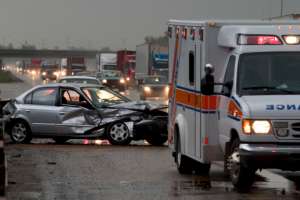The Road Accident Fund (the RAF) has recently suffered from cash flow mismanagement and administrative and reputational problems. This has led to a delay in the settlement of matters, which in turn has forced attorneys to find alternative methods to ensure that their client’s rights are vindicated. Currently, attorneys have turned to the courts, particularly the Trial Interlocutory Court and the Default Judgment Court, in order to obtain intermediate or final relief for their clients.
This has resulted in a saturation of applications against the RAF in the High Courts of South Africa, with approximately 90% of litigation in most courts across the country being against the RAF.[1] This has resulted in an overwhelmed judiciary and backlogged court rolls, particularly in Gauteng. In light hereof, discussions arose around the possibility of the establishment of a specialised RAF court to reduce the burden on the judiciary and offer Claimants a lifeline to resuscitate their languished action against the RAF.
The current RAF litigation modus operandi established by various practice directives entails approaching specialised Trial Interlocutory Courts. These courts facilitate the ability of the Claimant to obtain a court order against the RAF by compelling the RAF to engage in terms of the Uniform Rules of Court, failing which, the Claimant may make another application to the court to have their matter referred to the Default Judgment Trial Court to be heard on a default basis.
Depending on the type of RAF matter, being an injuries claim or a loss of support claim, Judges are required to scrutinise a matter by considering the evidence available in the matter, which includes multiple expert reports detailing the physical sequelae of the Claimant’s injuries and the long-term ramifications on the Claimant’s employability and capacity to earn an income. This process takes time, sometimes leading to delays and postponements of matters on the court rolls.
As a result of the delay and owing to the incessant influx of trial interlocutory and default judgment applications, the Deputy Judge President of the Johannesburg High Court of South Africa, DJP Roland Sutherland, has rostered additional judges to each court in order to decrease the lead time for date allocations, to expedite the hearing of matters and to mitigate the overburdening of court rolls.
Notwithstanding the aforesaid, however, there are unfortunately still systemic deficiencies that hinder the efficient flow of matters through the Courts, and this reality, coupled with the unequivocally large volume of RAF matters, still begs the question of whether a specialised RAF court should be established.
In South Africa, several specialised courts have been set up in the past to deal with matters in specific areas of law, such as the Labour Court, Land Claims Court, and the Competition Appeal Court. These courts are vested with specific jurisdiction to preside over principal actions and interlocutory applications falling within the ambit of the relevant field of law and are established with the key intention to curtail overburdened Magistrate and High Court rolls.
The establishment of a specialised RAF court would not only ensure that the Judges appointed to the specialised RAF court have expertise in personal injury and RAF cases but would also ensure that judges considering complex RAF matters, consider them with the required expertise and care[2]. The establishment of the specialised RAF court would also guard against overburdening the Magistrate and High Court rolls with RAF claims, which seem to make up the majority of the court rolls.
The RAF provides a vital public function in ensuring that those who are injured in motor vehicle collisions can receive compensation for their injuries or a family member’s death. It is important to not lose sight of this purpose. The courts, in turn ensure that the RAF performs its functions. The courts in South Africa have played an important role in judicial oversight over fraud and corruption. With this in mind, the establishment of a specialised RAF court may be a solution to the backlog of cases that the courts are currently experiencing, ensuring that the vulnerable members of our society get the compensation that they deserve in line with the mandate of the RAF.
Written by Bavukile Magagula, Brian Preller and Kristin Meikle (Candidate Attorneys)
[1] Taylor v Road Accident Fund and a related matter [2020] JOL 48990 (GJ) at paragraph 14.
[2] Markus B Zimmer ‘Overview of Specialized Courts’ International Journal for Court Administration (2009).



